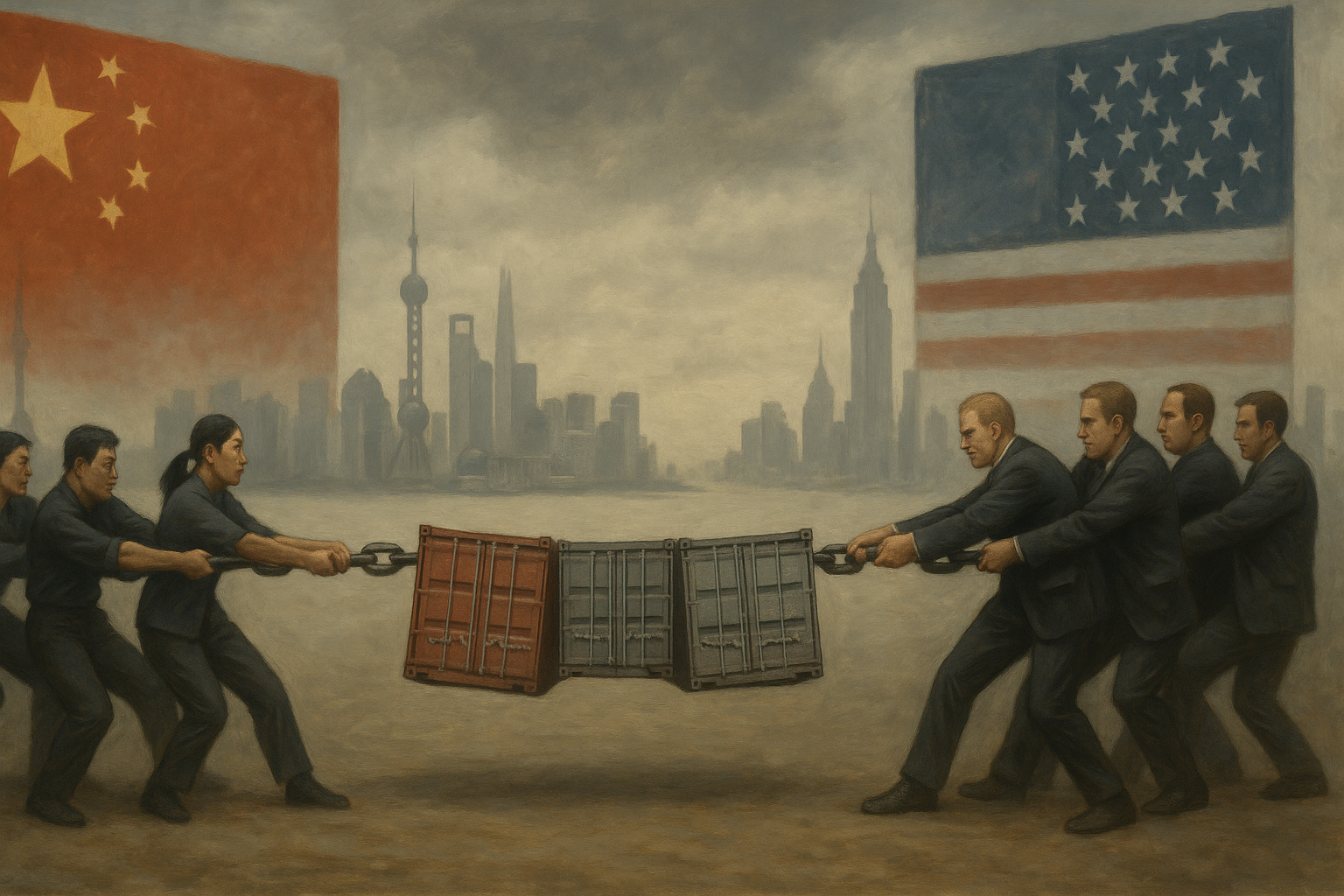Beijing has declared it will "fight to the end" in its trade war with Washington. Let that sink in for a moment. Not "negotiate in good faith" or "seek mutual resolution" but fight to the bitter end—language that sounds more appropriate for a historical war documentary than international commerce.
I've been covering Sino-American economic relations since 2018, and this latest statement manages to be simultaneously alarming and utterly predictable. It's like watching the same movie for the fifth time and still hoping for a different ending.
The Chinese Commerce Ministry spokesman delivered the usual performance—a well-rehearsed blend of indignation and resolve. American bullying this, Chinese resilience that. You know the script by now. I certainly do.
What's really happening here is a classic case of political theater playing to multiple audiences at once. The Chinese leadership needs to appear uncompromising to its domestic population (heaven forbid they look weak in the face of Western pressure), while American politicians from both parties have discovered that China-bashing is perhaps the only thing they can agree on anymore.
Look, China's economy isn't exactly thriving right now. Their export sector is gasping for air, domestic consumption remains sluggish, and their property market continues its slow-motion implosion. Several manufacturers I spoke with in Guangdong last month confirmed what the official statistics won't tell you—things are tough and getting tougher.
But will Chinese officials admit this? Not a chance.
Instead, we get dramatic proclamations about fighting to some undefined "end"—a conveniently elastic concept that can mean whatever they need it to mean when the time comes to actually make a deal.
The time horizons here are fascinating. Western leaders think in 2-4 year election cycles. Chinese leadership operates on decades-long planning schedules. It's like watching a chess player who's willing to sacrifice several pieces now for a theoretical advantage fifteen moves ahead.
(Though whether that long-term thinking is actually working out for them is increasingly questionable.)
What's particularly striking is how markets have become numb to this endless posturing. Remember when the first round of tariffs in 2018 sent stock indexes plummeting? Now, existential threats to the global trading system barely register a blip on the volatility index. We've all become desensitized to the constant state of economic brinkmanship.
It's almost... comforting? In a twisted way?
The whole situation reminds me of that old couple at the diner who've been bickering for 50 years—they're not actually going to divorce, they've just forgotten how to communicate any other way.
So what does this mean for investors and companies caught in the crossfire? Primarily, it signals that the "China plus one" manufacturing strategy isn't just fashionable—it's essential. No prudent business leader can afford to have their supply chain overly concentrated in either economic sphere anymore.
I recently toured a factory in Vietnam that had quadrupled its workforce in three years, almost entirely from production shifted out of China. The manager—a veteran of two decades in Shenzhen—told me, "We don't even call it relocating anymore. We call it insurance."
The conventional wisdom suggests we're heading toward regional trade blocs rather than truly global commerce. But then again, conventional wisdom has been predicting the imminent resolution of these trade tensions since I was still filing my reports via email instead of Slack, so... grain of salt there.
What's most important to understand about declarations like "fight to the end" is that they're primarily for domestic consumption. They're less diplomatic positions and more narrative management for the folks back home.
The real negotiations? Those happen behind closed doors, where both sides can find face-saving compromises without the theatrical posturing.
Or maybe not. Maybe this time is different. After five years of covering this slow-motion economic collision, I've learned only one thing for certain: nobody really knows how or when this ends.
But it sure isn't ending anytime soon.
